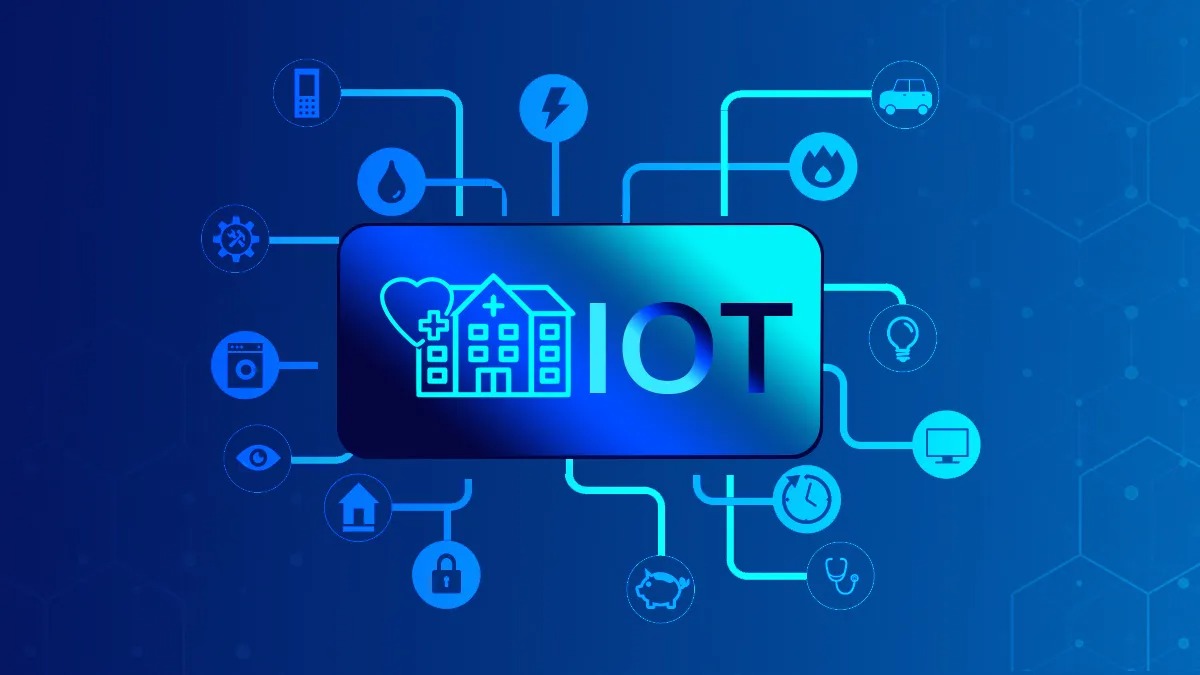The Intersection of IoT and Healthcare Software Development: Smarter Devices, Smarter Care
The healthcare industry has changed. It is no longer confined to traditional hospital walls, and patient care is extending into homes, wearable devices, and connected equipment. At the heart of this transformation lies the Internet of Things (IoT), which is a network of interconnected devices that collect, transmit, and analyze data in real-time. Many healthcare software development services are pairing healthcare software development with IoT to enable more innovative, more personalized, and proactive care. This has helped the hospitals reduce costs and optimize clinical workflows, and enhance patient outcomes.
But what makes IoT so impactful today? Several factors are contributing to the rise, including the increasing demand for remote care, the growing use of smartphones and wearables, and the expanding reliance on data-driven decision-making in healthcare.
Furthermore, patients are more open to technology than ever before, while providers are also seeking tools that can serve as the backbone of their digital transformation strategies.
In this blog, let us help you explore the intersection of IoT and healthcare software, helping you understand how connected devices are changing patient care.
What is IoT in Healthcare?
IoT refers to the integration of physical devices with network connectivity and embedded sensors, enabling the sending and receiving of data. In healthcare, IoT includes wearable fitness trackers, smartwatches, and connected medical devices (e.g., insulin pumps, heart monitors, and hospital-grade imaging equipment). Moreover, now the healthcare organizations want apps, systems, and platforms that interact with each other. For example, the remote monitoring platforms, telehealth apps, electronic health records (EHR) systems, and AI-driven diagnostic tools all exchange data to improve the quality of care. Together, IoT and software development offer a dynamic feedback loop, where devices collect data, software analyzes it, and helps healthcare providers make informed decisions in real-time.
IoT Enhancing Patient Care
One of the most significant impacts of IoT in healthcare is on patient care as the connected devices allow continuous monitoring, real-time alerts, and personalized treatment plans.
Remote Patient Monitoring (RPM)
The connected devices allow continuous monitoring, real-time alerts, and personalized treatment plans. Furthermore, RPM devices, such as smart blood pressure cuffs and glucose monitors, help track patients’ vital signs from the comfort of their own home. Additionally, allowing physicians to intervene proactively for chronic diseases such as diabetes, hypertension, or heart disease. This continuous data flow can prevent complications and reduce hospital readmissions.
Telehealth and Virtual Care Integration
In this context, the role of a virtual healthcare assistant is also evolving. With access to IoT-generated data, assistants can now support clinical staff by monitoring dashboards, flagging anomalies in patient vitals, and ensuring patients adhere to prescribed routines. These professionals serve as a vital link between patients and clinicians, especially in home-care or long-term monitoring setups.
Telehealth and Virtual Care Integration
IoT devices enhance the capabilities of telehealth platforms by providing clinicians with accurate and real-time data during consultations. Instead of relying on patient reporting, the doctors can access continuous measurements from devices, allowing for informed decision-making and personalized care plans.
Preventive Care
IoT sensors can detect anomalies that may identify the early signs of a hidden health issue. For example, the smart wearables can monitor irregular heart rhythms, sleep patterns, or oxygen levels, alerting users and clinicians before the problems escalate. Combined with predictive analytics in healthcare software, these insights help shift the focus from reactive to preventive care. This shift not only improves outcomes but also reduces costs by avoiding unnecessary delays, offering patients timely insights, and enabling physicians to deliver care that is personalized, proactive, and data-driven.
Next, let us tell you how clinical operations and workflows can be enhanced with the help of IoT.
Enhancing Clinical Operations and Workflow Efficiency
IoT has helped in optimizing hospital operations and clinical workflows, and you can approach any healthcare software development company to help with its secure integration.
Asset Tracking and Inventory Management
Hospitals rely on numerous medical devices, ranging from infusion pumps to ventilators. Furthermore, the IoT enables asset tracking systems to monitor equipment usage, location, and maintenance needs, decreasing downtime and increasing operational efficiency.
Smart Hospital Infrastructure
IoT-powered sensors are vital in managing energy consumption, lighting, and environmental controls within hospital facilities. Moreover, the integration with dashboards allows for optimizing resources, maintaining regulatory compliance, and reducing operational costs.
Staff Workflow Optimization
IoT solutions can increase the productivity of staff by tracking patient flow, automating routine checks, and alerting the caregivers when intervention is required. This also enables nurses and doctors to focus on critical care rather than administrative tasks.
Moreover, with data-driven insights and AI integration, the powers of IoT can be amplified.
Data Driven Insights & AI Integration
The uses of IoT can be diversified with AI integration, so let us tell you more about it so that you can leverage the power of IoT in the right way.
Predictive Analytics
Healthcare software can analyze IoT-generated data to predict potential healthcare risks. For example, AI algorithms can identify patterns in blood glucose readings or heart rate variability, giving early warnings for patients and clinicians. Furthermore, predictive analytics facilitate proactive interventions, personalized care plans, and decreased hospitalization rates.
Integration with EHR
IoT devices give massive datasets, but without proper integration, the data may lose its potential. Here, the modern healthcare software ensures seamless integration of IoT data with EHR systems. This integration helps in making informed decisions and improving the continuity of care.
Research and Clinical Trials
Software platforms and connected devices speed up the research process by offering real-time data collection and remote monitoring for clinical trials. This helps enhance data accuracy, minimize costs, and allows for more active patient participation, eventually improving medical knowledge.
Due to these uses and more, the IoT has a bright future, reshaping the healthcare industry. That’s why many healthcare software development services are focusing on IoT in healthcare to help healthcare providers with its smooth integration.
The Future of IoT in Healthcare Software
The IoT in healthcare has changed the way in which care is delivered and experienced. Furthermore, below are the key trends:
Personalized Medicine
Combining IoT and genetic or lifestyle information can tailor treatments to individual patients.
Predictive & Preventive Healthcare
Using AI on IoT data can predict diseases before they are even detected. This helps in proactively managing patient health.
Elderly Care
The elderly and disabled patients can be monitored continuously in IoT-enabled homes, also providing emergency alerts and seamless communication with caregivers.
Integration of Blockchain
The inclusion of blockchain can further increase data security and transparency, allowing tamper-proof medical records and facilitating safe data exchange between stakeholders.
Indeed, these innovations represent the shift towards the more proactive, patient-centered healthcare ecosystem. In which the technology helps the providers and patients to make smarter decisions.
Conclusion
The intersection of healthcare software development with IoT has completely changed the way in which care is delivered. Furthermore, the smart devices, combined with sophisticated analytics, offer continuous monitoring that traditional healthcare systems cannot offer. However, realizing this vision requires addressing challenges related to security, interoperability, device reliability, and scalability, furthermore, with the advancement in IoT, the healthcare software development continues to advance too, with the promise of delivering smarter care.
All in all, by bridging the gap between patients, providers, and technology, IoT is enhancing healthcare and reshaping the future that is more connected, proactive, and personalized. So, after reading all this, if you are willing to get an IoT-powered software that can effectively help you with remote patient monitoring, then get in touch with an experienced healthcare software development company. That can help in the designing, development, and implementation of healthcare solutions as per your needs.






